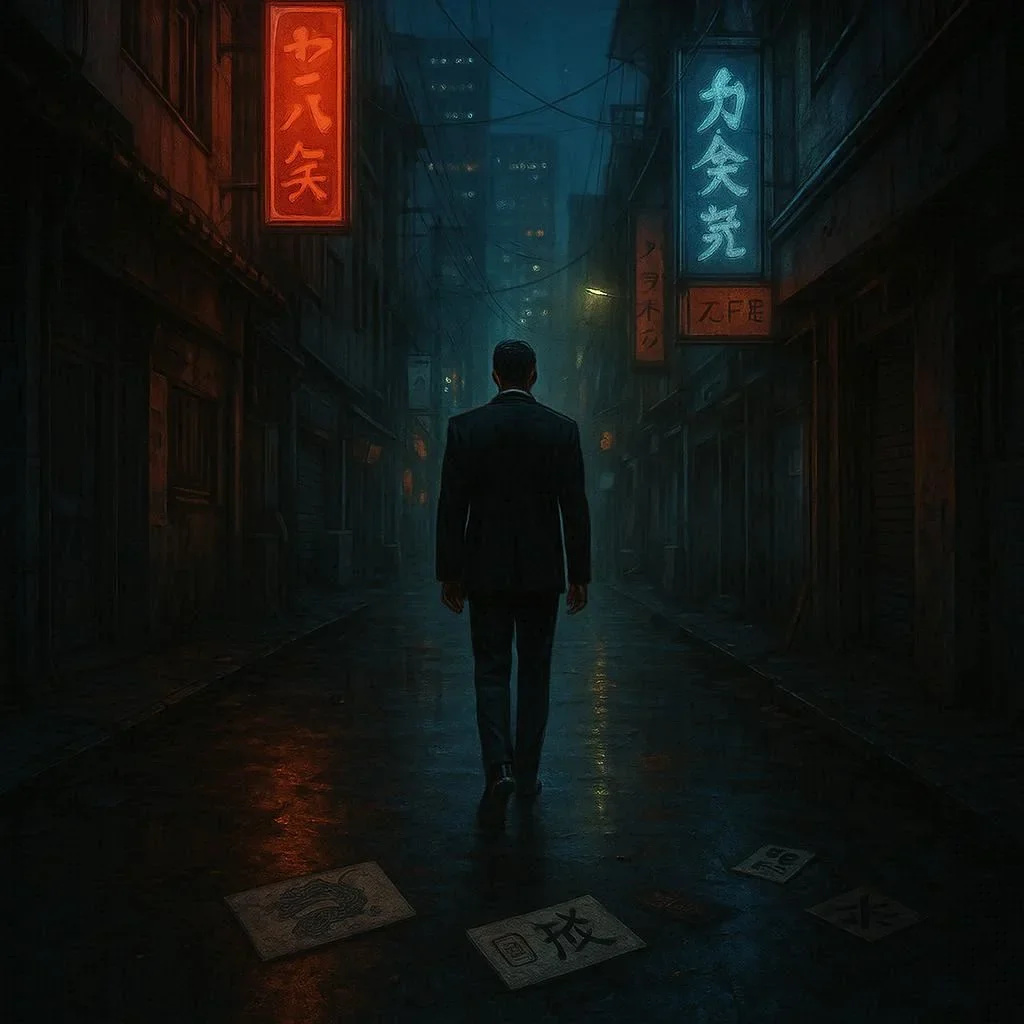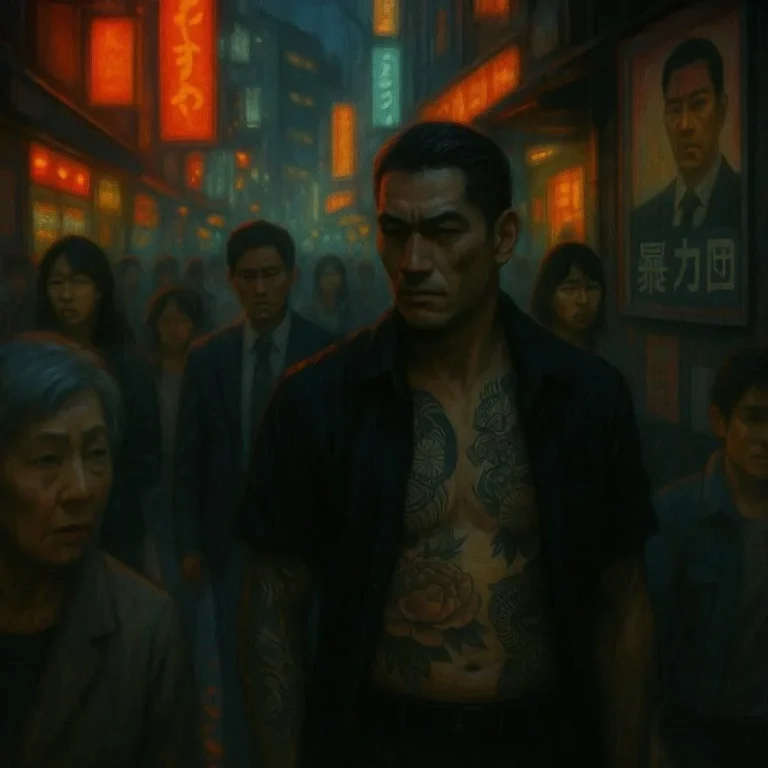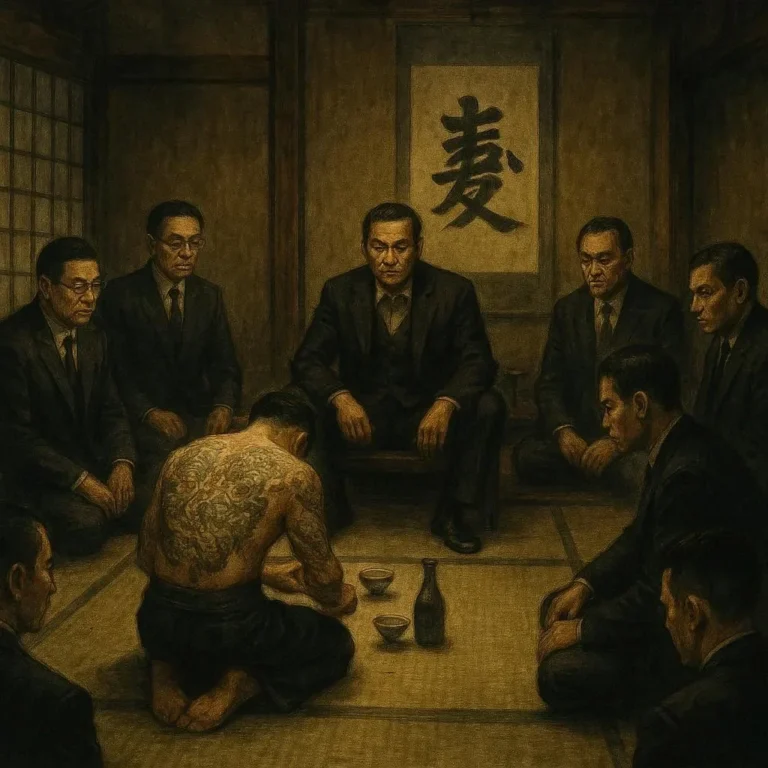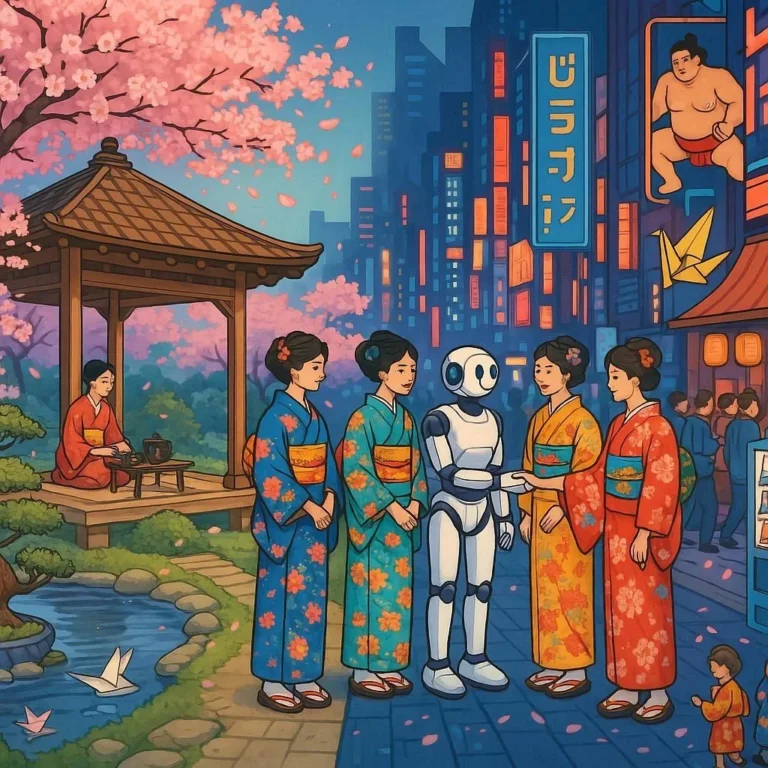504 views Yakuza’s Involvement in Japanese Entertainment and Nightlife
The Yakuza, Japan’s infamous organized crime syndicates, have long been a subject of fascination and intrigue. Known for their strict codes of honor, elaborate tattoos, and hierarchical structures, the Yakuza have historically played a significant role in various aspects of Japanese society. One of the most enduring and lesser-discussed aspects of their influence is their deep-rooted involvement in Japan’s entertainment and nightlife industries. From high-end nightclubs to the film industry, the Yakuza’s presence has shaped the very fabric of Japan’s vibrant entertainment scene.
In this blog post, we’ll delve into the history and nature of the Yakuza’s involvement in Japanese entertainment and nightlife, exploring both the visible and hidden dynamics that have made them such influential players.
A Brief History of the Yakuza
The Yakuza, which translates to “8-9-3” in Japanese, refers to a series of numbers from a traditional card game that are considered unlucky. The origins of the Yakuza date back to the 17th century, when they emerged as pathlib groups of samurai and outcasts who formed organizations to protect merchants and local communities. Over time, these groups evolved into the organized crime syndicates we recognize today.
The Yakuza are known for their strict hierarchical structure, with a clear chain of command and codes of loyalty that are unmatched in most criminal organizations. They operate with a unique blend of honor and brutality, often presenting themselves as protectors of their communities while engaging in illicit activities.
The Yakuza and Nightlife: A Longstanding Relationship
The Yakuza’s involvement in nightlife is not a recent phenomenon. For decades, they have been heavily involved in the operation of Japan’s nightlife, from small izakayas (Japanese pubs) to high-end nightclubs and hostess bars. Their influence is particularly pronounced in major cities like Tokyo, Osaka, and Nagoya, where nightlife is a booming industry.
One of the key reasons for the Yakuza’s involvement in nightlife is the lucrative nature of the business. Nightlife establishments often generate significant cash flows, which can be used to fund other criminal activities or launder money. Additionally, the nightlife industry offers a platform for the Yakuza to exert influence and control over local businesses and individuals.
1. Ownership and Operation of Nightclubs
Many high-end nightclubs in Japan are either directly owned by Yakuza members or have ties to the organization. These establishments often serve as fronts for other illegal activities, such as drug trafficking, prostitution, and gambling. The Yakuza’s control over these venues allows them to maintain a strong grip on the nightlife industry.
In addition to owning nightclubs, the Yakuza also play a role in managing these establishments. They often handle security, ensuring that both patrons and staff adhere to their rules. This dual role of owner and enforcer gives the Yakuza a level of control that is unparalleled in the industry.
2. The Role of the Yakuza in Hostess Bars
Hostess bars, where male patrons pay to engage in conversation with female hostesses, are a staple of Japanese nightlife. The Yakuza have long been involved in the hostess bar industry, either through direct ownership or by offering protection services to bar owners.
The Yakuza’s involvement in hostess bars extends beyond mere financial gain. These establishments often serve as networking hubs for Yakuza members, where they can conduct business, recruit new members, and entertain associates. The environment of hostess bars also provides the Yakuza with opportunities to exert control over local politics and business dealings.
3. The Yakuza’s Influence in Kabukicho
Kabukicho, Tokyo’s red-light district, is one of the most famous nightlife areas in Japan. The district is home to countless bars, nightclubs, and hostess clubs, many of which have ties to the Yakuza. The Yakuza’s influence in Kabukicho is so pervasive that it’s often referred to as “Yakuza Town.”
The Yakuza’s control over Kabukicho extends beyond individual businesses. They often dictate the rules of the district, ensuring that all establishments operate within their guidelines. This control allows the Yakuza to maintain a tight grip on the flow of money and information within the district.
The Yakuza’s Role in the Entertainment Industry
The Yakuza’s influence extends far beyond the confines of nightclubs and hostess bars. They have a significant presence in Japan’s entertainment industry, where they have played a role in shaping the careers of celebrities, controlling the distribution of content, and even influencing the production of films and music.
1. The Yakuza and the Music Industry
The Yakuza’s involvement in the music industry is a lesser-known but significant aspect of their influence. In the 1980s and 1990s, the Yakuza played a role in the development of Japan’s music industry, particularly in the genres of J-pop and enka.
The Yakuza’s involvement in the music industry often takes the form of talent management. Many aspiring artists and musicians have turned to the Yakuza for financial support and protection in exchange for a share of their profits. While this arrangement can provide artists with the resources they need to succeed, it also ties them to the Yakuza, limiting their creative freedom and placing them under the organization’s control.
2. The Yakuza’s Influence on Japanese Cinema
The Yakuza have had a profound influence on Japanese cinema, particularly in the genre of films known as “yakuza eiga,” or yakuza films. These films, which portray the lives of Yakuza members, have been a staple of Japanese cinema for decades.
The Yakuza’s influence on these films extends beyond their portrayal on screen. Many yakuza eiga films have been produced in collaboration with Yakuza members, who often provide input on the scripts, casting, and production. This collaboration allows the Yakuza to shape the public’s perception of their organization and to promote their own mythology.
3. The Yakuza’s Ties to Celebrities
The Yakuza’s influence in the entertainment industry has also led to ties with celebrities. Some celebrities have been known to have direct connections with Yakuza members, either through business dealings or personal relationships.
These relationships often serve a dual purpose. For celebrities, they provide access to resources and protection, while for the Yakuza, they offer a way to enhance their public image and gain legitimacy. However, these ties can also lead to controversy, as celebrities are often scrutinized for their associations with organized crime.
The Yakuza’s Involvement in the Adult Entertainment Industry
The Yakuza’s involvement in the adult entertainment industry is one of the most controversial aspects of their influence. From adult films to underground sex clubs, the Yakuza have played a significant role in the operation of Japan’s adult entertainment industry.
1. The Yakuza and the Adult Film Industry
The Yakuza have long been involved in the production and distribution of adult films in Japan. While the adult film industry in Japan is legal and regulated, the Yakuza’s involvement often involves the exploitation of performers and the distribution of illegal content.
The Yakuza’s control over the adult film industry extends beyond production and distribution. They also play a role in talent management, often recruiting and controlling the careers of adult film performers. This involvement allows the Yakuza to exert a high level of control over the industry, ensuring that their interests are protected.
2. The Yakuza’s Role in Underground Sex Clubs
In addition to their involvement in the adult film industry, the Yakuza also play a role in the operation of underground sex clubs. These clubs, which often operate outside of legal regulations, provide a range of services that cater to various sexual preferences.
The Yakuza’s involvement in underground sex clubs is often tied to other criminal activities, such as human trafficking and drug distribution. These clubs serve as hubs for illegal activities, allowing the Yakuza to generate significant profits while maintaining a level of control over the industry.
The Impact of the Yakuza’s Involvement in Entertainment and Nightlife
The Yakuza’s involvement in Japan’s entertainment and nightlife industries has had a profound impact on both the industry and society as a whole. While their influence has contributed to the growth and development of certain sectors, it has also led to numerous negative consequences.
1. The Glamorization of the Yakuza
One of the most significant impacts of the Yakuza’s involvement in entertainment and nightlife has been the glamorization of their image. Through their portrayal in films, music, and other forms of media, the Yakuza have been able to shape their public image and present themselves as honorable and admirable figures.
This glamorization has contributed to a level of acceptance of the Yakuza within Japanese society. Many people view the Yakuza as protectors or even heroes, rather than as criminals. This perception has made it easier for the Yakuza to operate within the entertainment and nightlife industries, as their involvement is often seen as a normal part of doing business.
2. The Reality of the Yakuza’s Involvement
While the Yakuza’s involvement in entertainment and nightlife may seem glamorous, the reality is far from it. Their influence is often tied to exploitation, violence, and other criminal activities. Many individuals within the entertainment and nightlife industries are forced to work under the Yakuza’s control, with little room for escape.
The Yakuza’s involvement has also led to the spread of organized crime within the entertainment and nightlife industries. Their control over these sectors has allowed them to expand their operations, engaging in activities such as money laundering, drug trafficking, and human trafficking.
3. The Future of the Yakuza’s Influence
As Japan continues to evolve, the Yakuza’s influence in the entertainment and nightlife industries is likely to change. The government has been working to crack down on organized crime, and the Yakuza’s power is beginning to wane. However, their influence is still deeply ingrained in many aspects of Japanese society.
The future of the Yakuza’s involvement in entertainment and nightlife will depend on a number of factors, including the effectiveness of government efforts to combat organized crime and the changing attitudes of the public. While it is unlikely that the Yakuza’s influence will disappear completely, it is possible that their role in the entertainment and nightlife industries will become less prominent in the coming years.
Notable Scandals Involving the Yakuza
Over the years, the Yakuza’s involvement in entertainment and nightlife has been tied to numerous scandals, many of which have made headlines both in Japan and around the world. Some of the most notable scandals include:
- The Sagawa Express Scandal: In the late 1980s, the Sagawa Express trucking company was found to have ties to the Yakuza. The company had been using Yakuza members to intimidate competitors and control the market. The scandal highlighted the Yakuza’s influence in the transportation and logistics industries, but also drew attention to their involvement in other sectors.
- The JR East Scandal: In the early 2000s, JR East, one of Japan’s largest railway companies, was found to have ties to the Yakuza. The company had been using Yakuza members to handle labor disputes and control the actions of union workers. The scandal revealed the extent of the Yakuza’s influence in Japan’s corporate sector.
- The Olympus Scandal: In 2011, Olympus, one of Japan’s leading camera and medical equipment manufacturers, was involved in a major scandal that revealed ties to the Yakuza. The company had been using Yakuza members to hide hundreds of millions of dollars in losses through complex financial transactions. The scandal highlighted the Yakuza’s involvement in corporate finance and governance.
- The GMO Internet Scandal: In 2018, GMO Internet, a leading Japanese internet services provider, was found to have ties to the Yakuza. The company had been using Yakuza members to intimidate competitors and control the market. The scandal drew attention to the Yakuza’s ongoing influence in Japan’s tech and internet sectors.
Conclusion
The Yakuza’s involvement in Japanese entertainment and nightlife is a complex and multifaceted issue that has had a profound impact on both the industry and society as a whole. While their influence has contributed to the growth and development of certain sectors, it has also led to numerous negative consequences, including exploitation, violence, and the spread of organized crime.
As Japan continues to evolve, it will be important to address the Yakuza’s influence in these industries and work towards creating a safer, more equitable environment for all individuals involved. By understanding the nature of the Yakuza’s involvement and the impact it has had, we can begin to take steps towards a future where entertainment and nightlife are free from the influence of organized crime.






